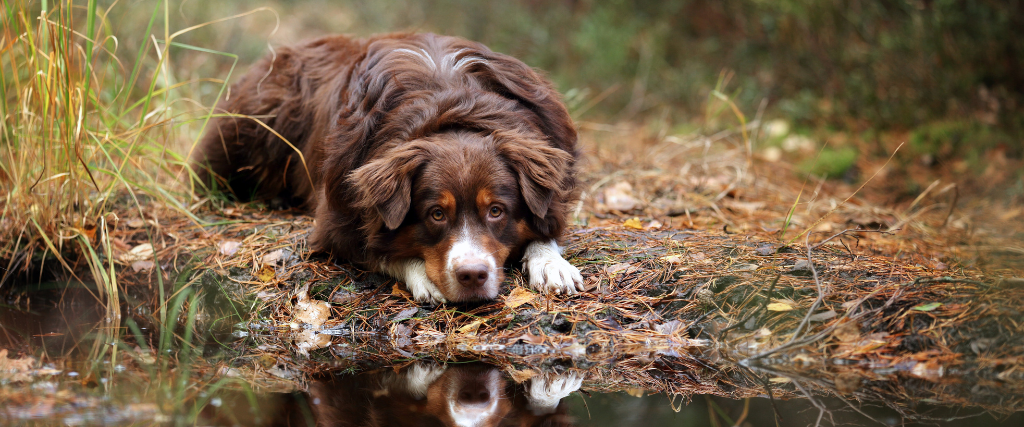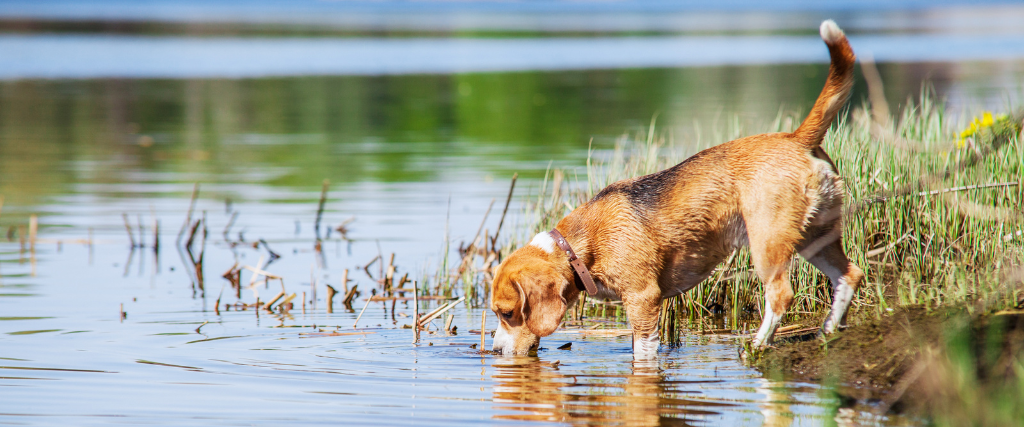What Is Leptospirosis
Leptospirosis is a disease that most dog owners have either never heard of or it sounds familiar, but they are not sure what it is. Leptospirosis is a bacterial organism that can cause liver and kidney failure in dogs and can be transmitted to people from dogs or other animals. Leptospira bacteria are most commonly found in wet environments and generally shed in the urine of wildlife or livestock. Your dog can be infected with leptospires either directly through infected tissue (i.e. consuming a dead animal) or animal secretions (most commonly urine) but can also be infected through indirect contact from contaminated water, soil, or food. Common routes of leptospirosis infection include drinking contaminated water or the bacteria can enter the body through a cut or mucous membranes (eyes, nose, or mouth). Leptospires in the environment can persist for months in the soil and easily drain into bodies of water, including puddles.

Diagnosing Leptospirosis
Leptospirosis in dogs can be challenging to diagnose because the clinical signs are often nonspecific and may occur from other causes. Common clinical signs include lethargy, fever, anorexia, vomiting, diarrhea, and weakness. Often elevated kidney and/or liver values will be seen on bloodwork. Your veterinarian may be suspicious of leptospirosis based on clinical signs, vaccination status, and the likelihood that your dog may have been exposed to this bacterial pathogen. If your veterinarian is suspicious of leptospirosis, they will probably recommend specialized blood and urine testing.
Treatment For Leptospirosis
If your dog is positive for leptospirosis, or your veterinarian strongly suspects leptospirosis, treatment starts with antibiotics, since it is a bacterial disease and intravenous fluid support, especially if there is an indication of kidney or liver injury. Usually hospitalization with supportive care is needed. Your veterinarian may also recommend that you contact your own physician about risks of possible exposure. The sooner that leptospirosis is diagnosed and treated, the better the chance of recovery.

There are many different serovars (strains) of leptospira. the strains often vary regionally and seasonally. Vaccines are available that protect against the four of the most common serovars that cause leptospirosis in dogs. No vaccine is 100% effective and there is the possibility that your dog could come into contact with a less common serovar. When possible, try to limit your dog’s contact with dead animals, wildlife, and stagnant water.
When detected early, leptospirosis can have a good outcome when proper treatment and supportive care are initiated. Speak with your veterinarian about possible risk factors for your dog being infected with this bacteria, and if vaccination is appropriate for your dog. Leptospirosis can be fatal, and there is the possibility that you could get infected by your dog.

